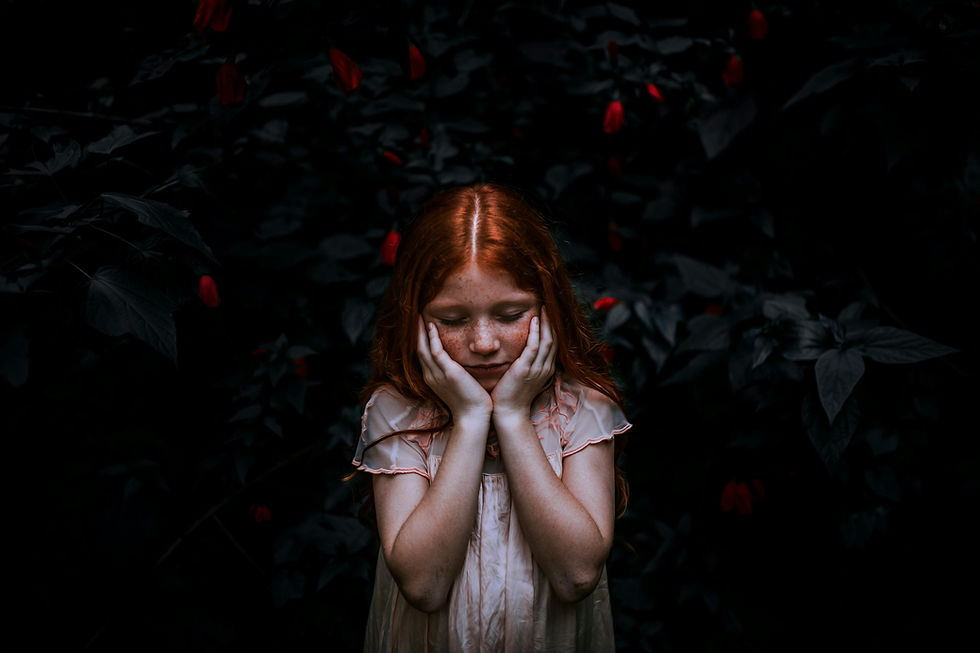From Dream Partner to Emotional Survival
- Aug 30, 2024
- 3 min read
Updated: Jan 23, 2025

When I first met Mark, I was convinced I had found my soulmate. He was charming, attentive, and everything I had ever dreamed of in a partner. I had envisioned a life of laughter, adventure, and unconditional love. But a few years into our marriage, the fairy tale began to crumble, and I found myself trapped in a relentless cycle of emotional abuse.
At the beginning, I was blinded by love and the promise of a perfect future. Mark seemed to be everything I had ever wanted. We shared dreams, planned for the future, and talked endlessly about our life together. But soon after the honeymoon phase faded, I started to notice subtle changes in our relationship. I began to feel like I was constantly walking on eggshells, trying to be someone I thought Mark wanted me to be. I worked tirelessly to improve myself—changing my habits, my mannerisms, even my appearance—anything to make him happy and keep the peace. But no matter what I did, nothing was ever enough.
I lived in a state of perpetual anxiety, where every day felt like a delicate dance between avoiding conflict and fighting for my own sanity. One day, I would be the model wife, careful not to disturb the calm facade Mark demanded. The next, I would find myself in a heated argument, desperately trying to assert myself while fearing the consequences of my words. I knew something was deeply wrong, but I couldn’t quite put my finger on it.
It was during these tumultuous times that I began to suspect infidelity, though I could never find concrete evidence. Mark’s behavior was erratic, shifting depending on who he had been with. When he spent time with his best friend after work, I could see the difference in his demeanor when he came home—distant, distracted, and cold. On days he visited his mother, he was almost sweet and attentive, a stark contrast to his usual self. It was as if he wore different masks depending on the company he kept, and I was left to navigate the shifting landscape of his moods and behaviors.
Leaving Mark was one of the hardest decisions I have ever made. I remember the day I finally gathered the courage to walk away; it felt like a mix of liberation and devastation. I had started to piece together my own strength through countless support groups, self-help books, and blogs written by others who had walked this painful path before me. Each story I read was a beacon of hope, a reminder that healing was possible, that others had survived this nightmare and emerged stronger.
Now, as I sit here in my small apartment, surrounded by the echoes of my past and the quiet hum of my new beginnings, I grapple with the remnants of my trauma. I’m a mess—emotional, physical, and mental scars still raw. I find solace in the knowledge that this chaos is part of the healing process. I understand that the journey is long and fraught with obstacles, but I also know that it’s a journey toward a brighter future.
Each day, I remind myself that healing is not linear. Some days are better than others, and that’s okay. I lean on the support from my new friends, from those who understand what I’ve been through, and from the countless voices in books and online communities that assure me that there is a light at the end of this dark tunnel.
I know that one day, I will be okay. I cling to the belief that, like those who came before me, I will rise from the ashes of this broken relationship and find happiness again. The process of healing is not about forgetting but about understanding and moving forward. I am still in the midst of it, and I acknowledge that there will be both good days and bad days.
But I am hopeful. I am waiting for the day when I will look back and see how far I have come, when I will no longer be defined by the pain but by the strength it took to overcome it. Until then, I am learning to be gentle with myself and to embrace the journey, knowing that the scars will eventually fade and a new chapter will begin.


Comments